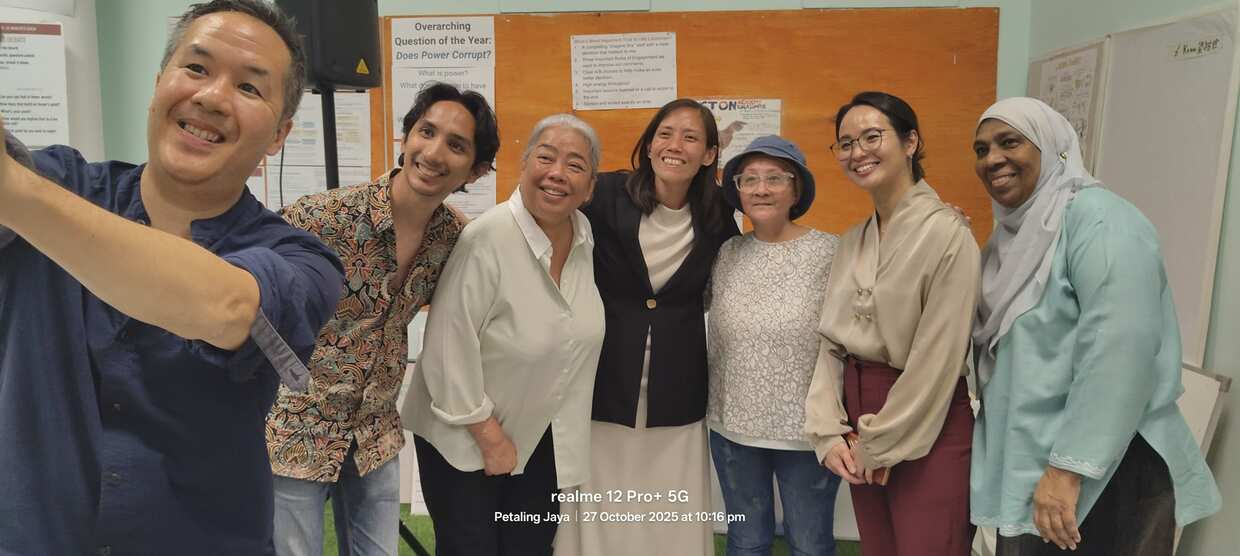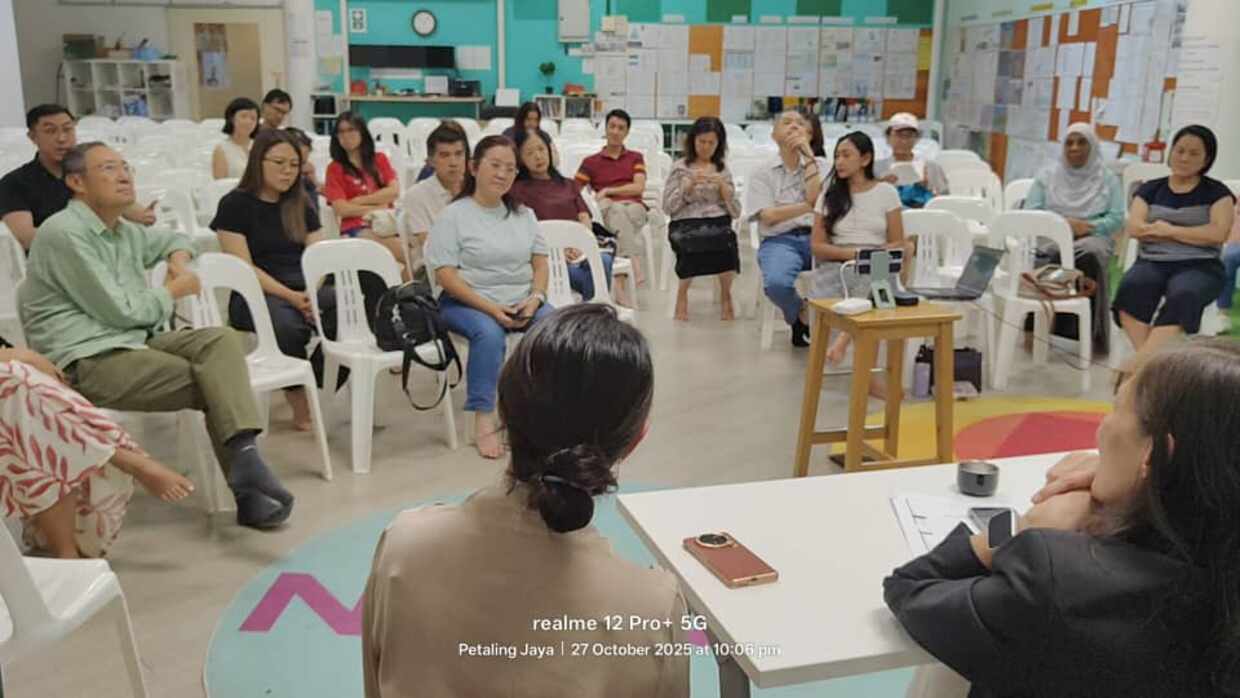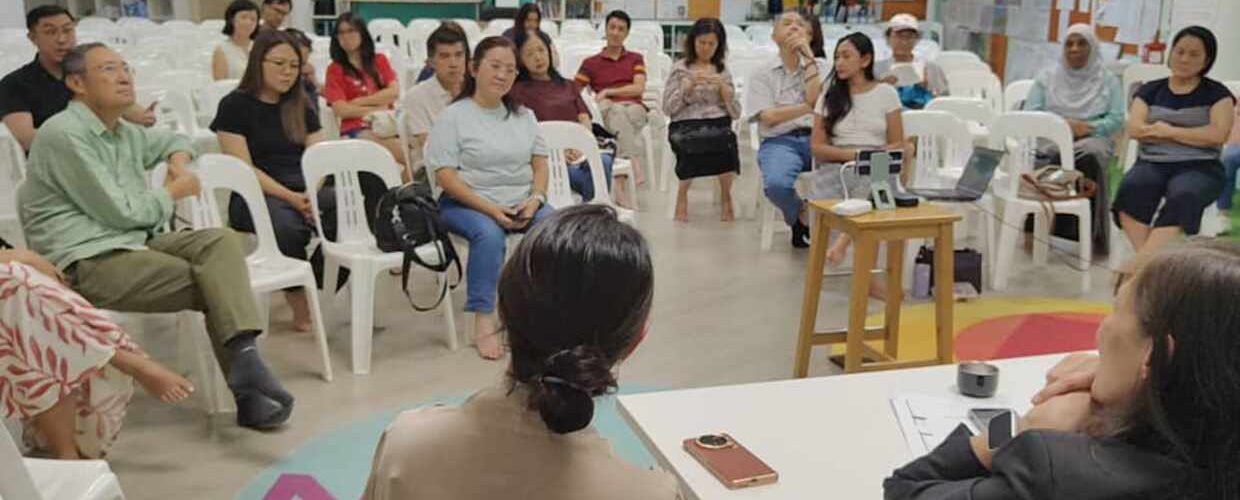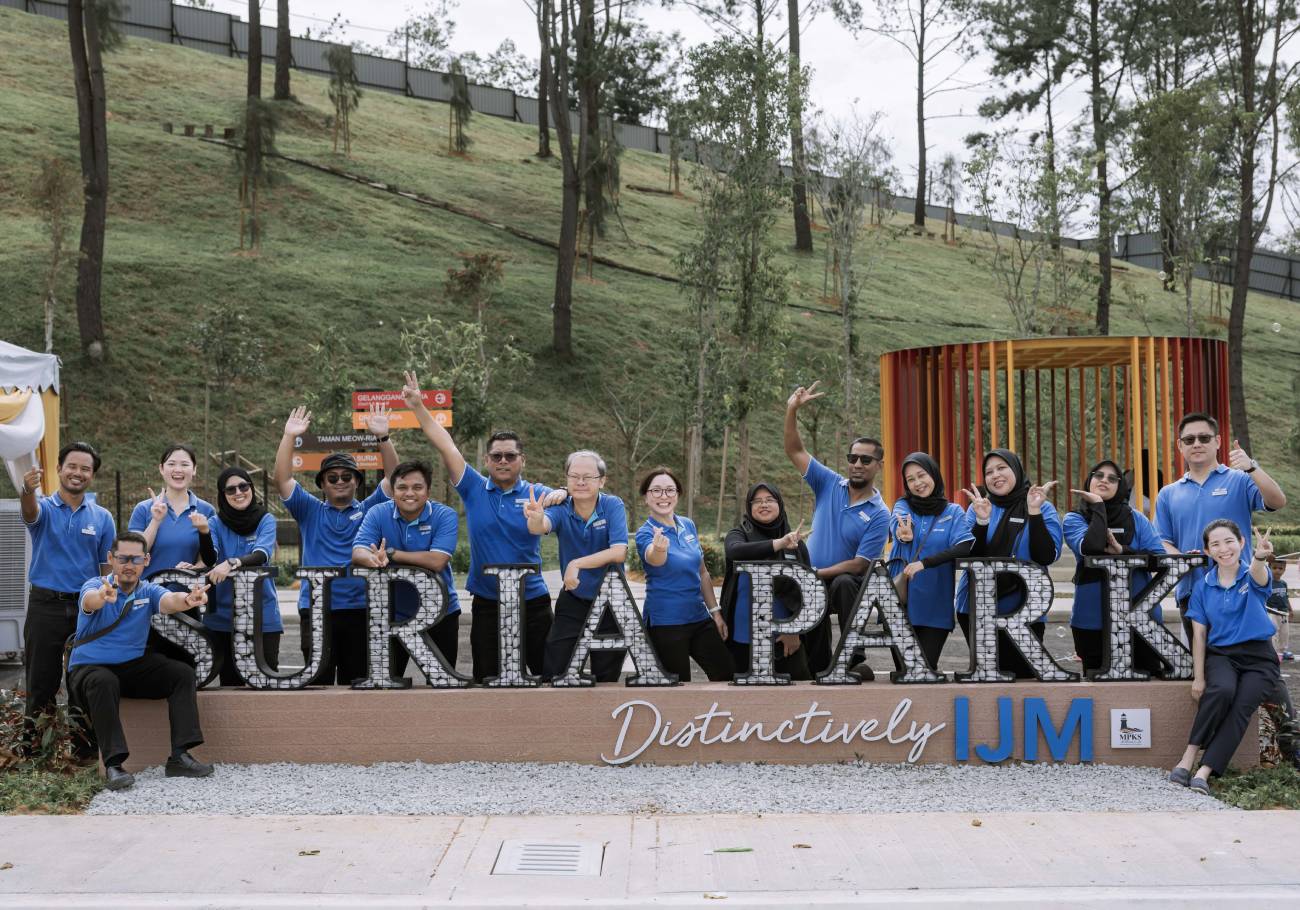Two weeks after a school tragedy that left Malaysians in mourning, parents, educators, and counsellors gathered at Acton Academy in Bandar Utama to ask one urgent question — What can parents do to prevent violence in schools?
Held on 27 October 2025 and streamed live to nearly a hundred online participants, the event was more than just a dialogue. It became a collective space for reflection, healing, and a renewed commitment to change.
Moderated by social advocate Nathaniel Tan, the panel featured Dr Hartini Zainuddin, child rights activist; Gillian Chong, school counsellor; Dr Shermaine Sim Su Tein, psychiatrist and mother; and Akram Yusof, community activist. Together, they spoke candidly about parenting, discipline, and the urgent need for empathy and inclusion in Malaysia’s education system.

Listening before leading
Opening the discussion, Dr Hartini pointed out an uncomfortable truth — there were no students in the room.
“We keep talking about young people, but rarely with them,” she said. “The Ministry of Education, teachers, and parents must learn to listen to the students instead of imposing on them.”
Her observation set the tone for the evening: if Malaysia truly wants safer schools, it must start by amplifying children’s voices.
Dr Hartini, who has worked with children in Malaysia and New York, stressed that lasting solutions come from understanding the lived realities of students. Audience members echoed this view, citing Nordic countries like Finland, Sweden, and Denmark — where empathy, creativity, and emotional well-being are key pillars of the education system — as examples of how children can thrive when learning environments are built on trust rather than fear.
Healing begins with safety

For counsellor Gillian Chong, the path to recovery begins with feeling safe again. Having worked closely with the students and teachers of the affected school, she described the quiet resilience of a community grappling with grief.
“They’re trying their best,” she said softly. “Some children don’t talk much, but they want to feel safe again — that’s the first step toward healing.”
Dr Shermaine Sim spoke about the delicate balance between discipline and compassion at home.
“We have to be parents first — not just friends,” she said. “But being firm doesn’t mean being harsh. Our children need to know that home is where they’ll always be heard.”
Meanwhile, community activist Akram Yusof reflected on his own turbulent teenage years and how mentors who refused to give up on him helped change his path. His story drew quiet nods from the audience — a reminder that connection, not punishment, often leads to transformation.
A nation reflects and rebuilds
Moderator Nathaniel Tan closed the session by thanking Acton Academy for hosting the forum, noting that lasting change begins with honest, inclusive conversations.
“Each of us has a role,” he said. “It’s not just the teachers or the government. It’s about the kind of environment we, as adults, create for the young — at home, in school, and online.”
The dialogue came in the shadow of a tragedy that stunned the nation. On 14 October 2025, 16-year-old student Yap Shing Xuen was killed at SMK Bandar Utama 4 by a younger schoolmate — an incident that prompted Prime Minister Datuk Seri Anwar Ibrahim to order a full review of school safety and mental health support nationwide.
In the aftermath, public discussions have turned to the deeper cultural issues underpinning student stress and aggression. Many questioned whether strict disciplinary systems have overshadowed empathy and communication in Malaysian schools.











Add comment